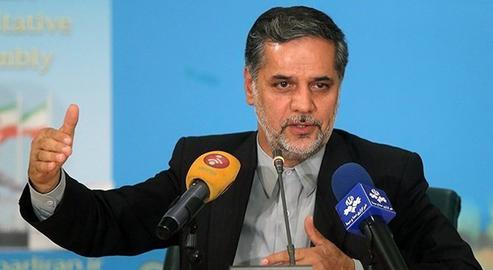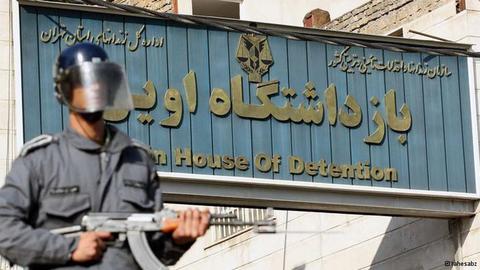On Thursday June 16 the US Senate passed legislation to impose new sanctions on Iran over its ballistic missile program and other non-nuclear points of contention. Called “Countering Iran’s Destabilizing Activities Act”, the bill accuses the Revolutionary Guards of involvement in international terrorism. The legislation passed with a rare near-unanimous vote of 98-2.
Iran’s reaction was immediate. On June 11 Speaker Ali Larijani asked Hossein Naghavi, the spokesman for the Iranian parliament’s National Security and Foreign Relations Committee, to prepare parliament’s response. Naghavi later announced a “comprehensive” bill that may include provisions designating the US military as a terrorist organization, adding that the American military was an “international ISIS” that “commits massacres” all over the world.
Naghavi said a draft of the bill was ready and would be presented to the full parliament after its current two-week recess is over.
The Iranian foreign ministry is also scheduled to present to parliament a report about the implementation of the nuclear agreement, officially known as JCPOA (Joint Comprehensive Plan of Action), covering the past six months.
Although the US Senate bill stays clear of the nuclear agreement, Naghavi argued that the new sanctions violated both the letter and the spirit of the JCPOA — a sentiment echoed by former foreign minister Ali Akbar Velayati, who now serves as Ayatollah Khamenei’s advisor in international affairs and a member of JCPOA Supervisory Board.
The supervisory board has eight members: President Hasan Rouhani, the speaker of the parliament Ali Larijani, Foreign Minister Javad Mohammad Zarif, Defense Minister Hossein Dehghan, Admiral Ali Shamkhani, Secretary of the Supreme National Security Council Ali Akbar Salehi, head of the Nuclear Energy Agency Ali Akbar Velayati and Saeed Jalili, the Supreme Leader’s representative and formerly chief nuclear negotiator under former president Mahmoud Ahmadinejad. On June 12 Ayatollah Khamenei called on the board to carry out their duties “to the letter”. As of now this board has not published any public report of its findings.
Fear of Appearing Helpless
“When accepting JCPOA, I explicitly set down conditions in writing — not verbally, but in writing — and these conditions must be observed to the letter,” said Khamenei in his speech. His emphasis on the word “written” clearly shows that the Supreme Leader is determined to hold the board’s feet to the fire. “When the other side brazenly says something,” he added, “it would seem that we are helpless if we retreat. This impression of our helplessness would encourage the enemy to increase its unjust pressures on us.”
There can be no doubt that if Iran takes any action that violates JCPOA it would put the whole agreement in peril. Iran’s obligations under the nuclear treaty are technical and measurable. Ayatollah Khamenei is aware of this: he wants to saddle the supervisory board with the responsibility for any act that would violate the agreement, especially since the board has yet to come up with any evaluation of JCPOA, be it positive or negative.
Before the election of Donald Trump, there was a clear dividing line between supporters and opponents of the nuclear agreement. But the new sanctions, including those just proposed by the Senate, have been eroding this line. Now there seems to be a consensus that the policies of the Trump Administration are violating both the letter and the spirit of the agreement.
What exactly Iran intends to do is anybody’s guess. The fate of the bill passed by the Senate is far from certain. It must be passed by the US House of Representatives and becomes law only if President Trump signs it. The bill also includes new sanctions against Russia and the Trump Administration has shown no eagerness for such sanctions. And the proposed sanctions have received a mixed response from House members – though not because Iran enjoys much or any support in House of Representatives. A Republican congressman, Mark Meadows, told Voice of America that some House members have doubts about the effectiveness of US sanctions in dealing with Iran and, in effect, called for more draconian measures against the Islamic Republic.
For the moment, perhaps, the Islamic Republic hopes that its threat to designate the US military as a terrorist organization would leave the Americans shaking in their boots.
visit the accountability section
In this section of Iran Wire, you can contact the officials and launch your campaign for various problems

























comments